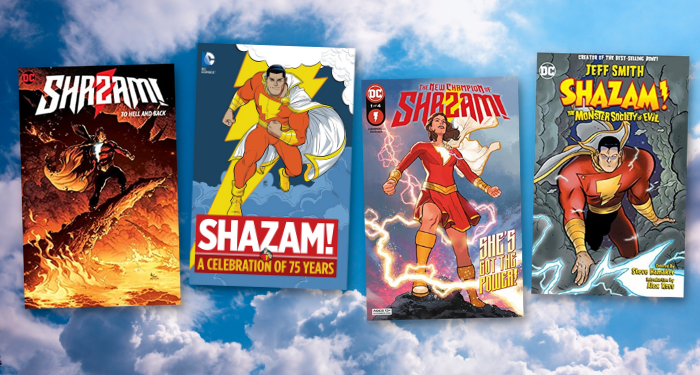Shazam! Fury of the Gods hits theaters on March 17. The first Shazam!, which was released in 2019 and starred Zachary Levi as the titular hero, was one of DC’s better received movies, even if the character’s comic book origins are a little confusing. If you’re looking to read some Shazam comics before seeing the movie, I’ve rounded up a few recommendations for you.
But first, a quick explanation of the character’s name. The character we now know as Shazam is Billy Batson, a young boy who transforms into the World’s Mightiest Mortal when he speaks the magic word “Shazam!” However, when Billy debuted in 1939, he was published by a company called Fawcett Comics, and saying the word “Shazam!” turned him into the superhero Captain Marvel.
Cap quickly became the biggest superhero of the 1940s, outselling even Superman, so of course DC promptly sued, claiming copyright infringement. While DC and Fawcett tied the character up in the courts, Marvel snuck in and published their own, entirely unrelated Captain Marvel — and secured the trademark, meaning that no matter how the lawsuit panned out, only Marvel could publish comics under the brand “Captain Marvel.”
Fawcett eventually went out of business and DC purchased the rights to Billy Batson, but they could no longer publish him in comics with the title “Captain Marvel,” so all DC comics starring Billy Batson as Captain Marvel used the word “Shazam” in the title instead. That is, until 2011, when they gave up and just changed the character’s name to Shazam.
All this means that some of the characters below are Captain Marvel comics about Captain Marvel, some are Shazam comics about Captain Marvel, and some are Shazam comics about Shazam. But they’re all the same guy, and he’s a real sweetheart.
Also, like so many other long-running comic book characters, Shazam has overwhelmingly been written and drawn by only white men. That is slowly, incrementally changing, but DC still has significant work to do in this regard. While Billy catches up, check out these comics by creators of color and these comics by women.
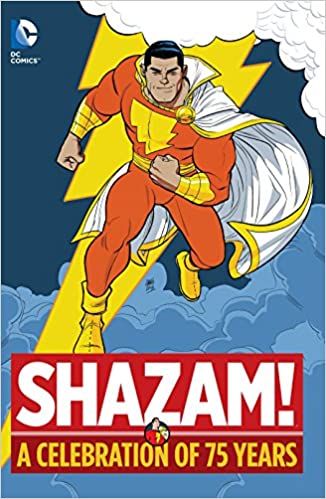
Shazam!: A Celebration of 75 Years by Bill Parker, C.C. Beck, et al
As noted above, Shazam has a long and storied history, and his earliest comics, though dated in the usual ways, are some of the best the Golden Age of Comics has to offer. If you want an overview of the character from his earliest beginnings to the modern take the movies are drawing on…well, it’s all there in the title.
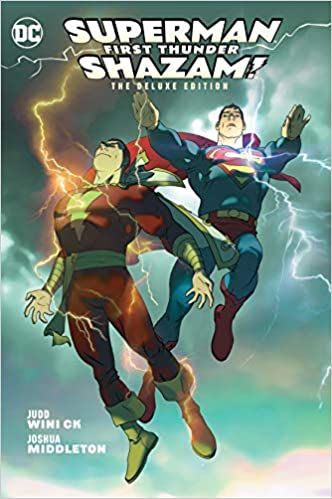
Superman/Shazam!: First Thunder by Judd Winick and Joshua Middleton
Superman and Captain Marvel have been compared countless times — that’s what the DC vs. Fawcett lawsuit was about — so you might expect this miniseries about their first meeting to begin and end with the tired old comic book question of who would win in a fight. But the first meeting of Clark Kent and Billy Batson is the real soul of this story, and Clark’s compassion and Billy’s sweetness make it one of the best pieces of characterization in either character’s history. Prepare to have your heartstrings tugged.
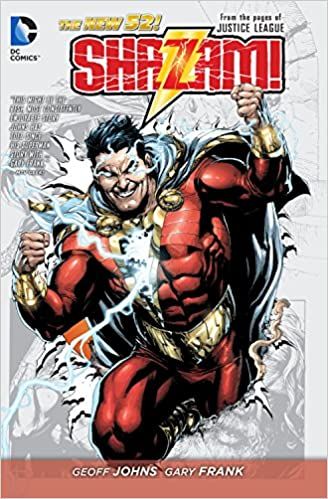
Shazam! Vol. 1 (The New 52): From the Pages of Justice League by Geoff Johns and Gary Frank
Oof, what a title. I’m going to be honest: I am not a fan of this take on Billy Batson, which changes him from a sweet, earnest kid to a selfish, opportunistic brat. Gary Frank’s painstakingly realistic art also seems like an odd fit for a character who transforms via magic word and is friends with a talking tiger. But it was the New 52 Shazam that introduced Billy’s extensive foster family outside of longtime characters Mary Batson and Freddy Freeman, so if you want to see where the movie cast came from, start here.
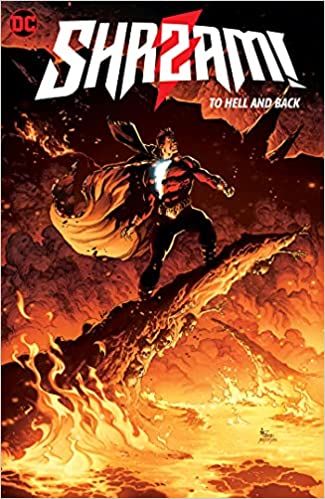
Shazam!: To Hell and Back by Tim Sheridan, Clayton Henry, Eduardo Pansica, and Julio Ferreira
Want to catch up on where Billy is currently in the comics? Start with this 2021 miniseries. Billy’s search for answers about why his powers are acting up leads him on a quest to Hell, alongside a mysterious new friend named Dane and a time-displaced version of one of his greatest enemies. It’s technically a spinoff from Teen Titans Academy, but you can (and should) ignore that. This is a fun little side quest that stands on its own.
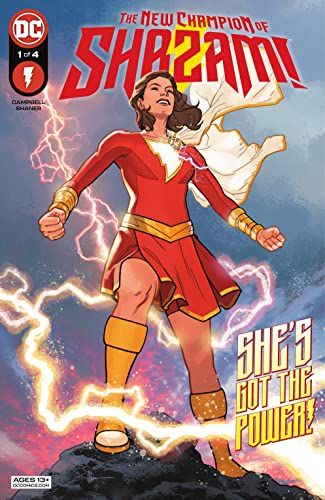
The New Champion of Shazam! by Josie Campbell and Evan Shaner
This recently completed miniseries picks up directly after To Hell and Back, but now it’s Billy’s twin sister Mary who holds all the magic of Shazam, while Billy is [SPOILER]. Mary just wants to go to college and live a normal life, but a series of disappearances, plus a talking rabbit, won’t let her. Mary has always been my favorite member of the Marvel Family (the Shazam Family? the Shazamily?), Josie Campbell writes stellar superpowered women, and I’m not sure there’s anyone on this Earth who draws Shazam characters as exquisitely as Evan Shaner, so you basically can’t miss with this book.
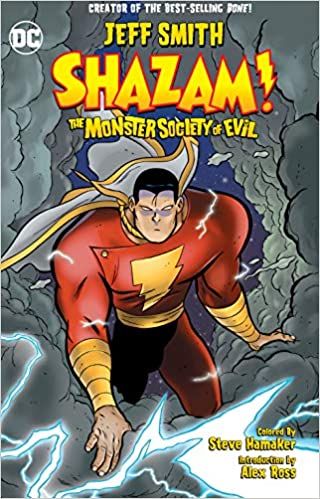
Shazam! and the Monster Society of Evil by Jeff Smith
At the end of the day, Shazam is a child’s power fantasy: a kid who can say a magic word and become the toughest, strongest grownup of all, then return to the freedom of childhood whenever he wants. That means Shazam is at his best in children’s comics, and this one is the best of the best. The Monster Society of Evil is an out-of-continuity origin story that introduces readers to the key players in Billy’s world — his long-lost twin Mary, the Wizard, the evil Dr. Sivana — via the most charming art you’ve ever seen in your life. If you only read one Shazam comic, make it this one.
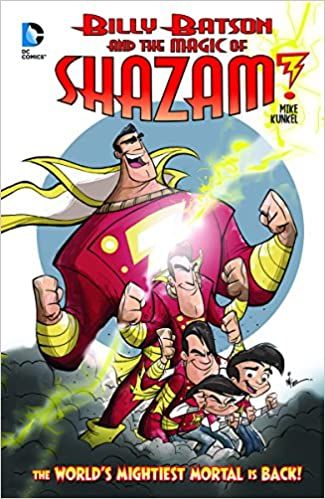
Billy Batson and the Magic of Shazam! by Mike Kunkel and Art Baltazar
This kids’ comic is a spiritual sequel to The Monster Society of Evil. The creators are different, but the tone, accessible cartoony art, and updated takes on the characters are very similar. Plus, it introduces more important characters like Captain Marvel Jr. and Black Adam. It’s a perfect follow-up to Jeff Smith’s work, especially if you’re reading with kids.
There are hundreds more Shazam comics out there, but these should get you started! And if you want to know more about the franchise, check out the first appearance of marquee Shazam villain Black Adam, or the history of the Shazam character who was the first female superhero with her own TV show.
